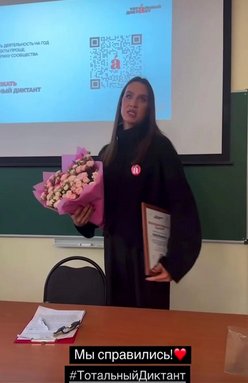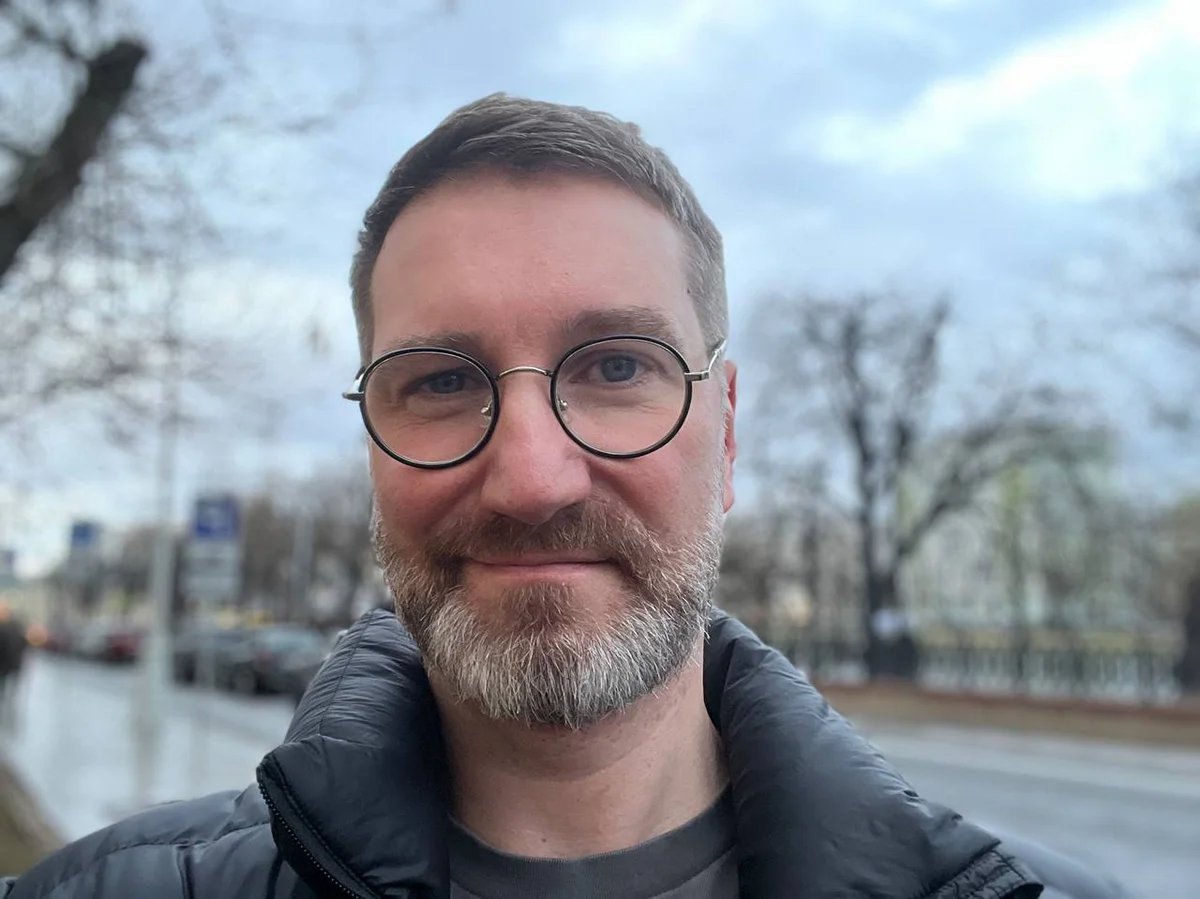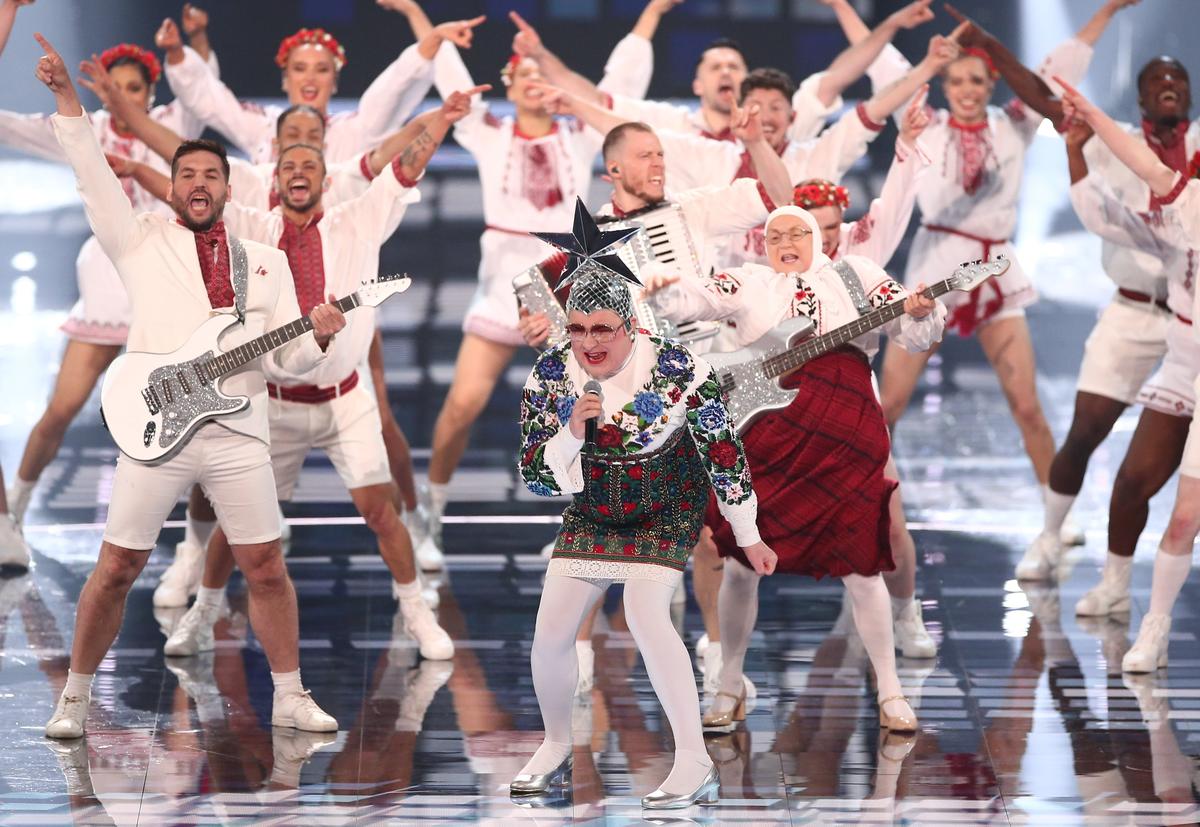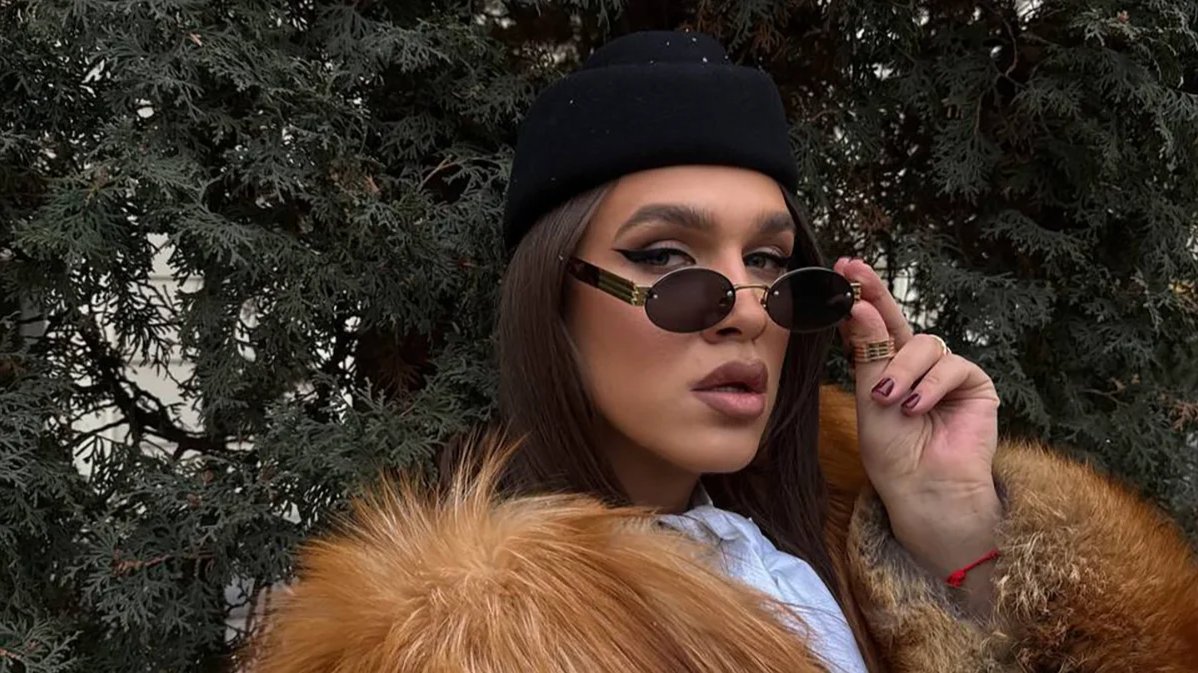Earlier this month, the well-known Russian beauty blogger Alexey Zhidkovsky took part in Total Dictation, a public event that allows anyone in the country to test their grammar and spelling skills by writing out a text in real time as it is read aloud by various celebrities.
The broadcast swiftly became the target of furious condemnation from conservative commentators and public figures, however, who demanded that the long-haired, meticulously made-up, femme-presenting Zhidkovsky be investigated for promoting “non-traditional sexual relations.” Such reactions have long been a predictable reflex from Russia’s self-appointed moral guardians.
What remains surprising, however, is that despite the Kremlin’s increasingly aggressive anti-LGBTQ rhetoric and legislation, a handful of queer-coded public figures still appear to enjoy a degree of impunity, despite the fact that in recent years, even top-tier celebrities have been publicly shamed or “cancelled” for perceived queerness or for transgressions as minor as wearing revealing outfits.

Alexey Zhidkovsky at Total Dictation. Photo: Telegram
Influencer Anastasia Ivleyeva’s now notorious Almost Naked party, which was held in Moscow at the height of the war in Ukraine in late 2023, acted as a lightning rod for Russia’s newfound conservatism. Pitching up to the club in revealing outfits — one rapper famously attended wearing nothing but a single sock — some of the Russian celebrities in attendance were fined for supposedly spreading “LGBT propaganda” despite the event lacking any queer context whatsoever, while others were forced to make confession videos and issue grovelling apologies.
Ivleyeva herself was made the scapegoat for the entire debacle and was ostracised, despite her best attempts to reclaim some of her erstwhile status by expressing her contrition and making various politically expedient statements.
Against this ultraconservative backdrop, Zhidkovsky, in his androgynous designer get-up, might be considered an improbable survivor in today’s Russia, where any form of gender nonconformity risks a backlash, an investigation by the police, or worse.
But his case also offers a telling glimpse into the contradictions of contemporary Russian homophobia. Zhidkovsky, who avoids explicit statements about his sexuality and has never officially come out — a process still fraught with taboo in Russia — maintains around 3 million followers on Instagram with content that blends beauty tutorials, acerbic humour, and commentary on daily life, much of which inspires memes. His apparent untouchable status may, many suspect, be linked to his close friendship with Kremlin-connected propagandist Kristina Potupchik, whose influence is believed to have shielded him from much official scrutiny.
The state’s real target in attacking the LGBTQ community isn’t sexual orientation but the inherently transgressive nature of queer aesthetics and culture.
Zhidkovsky, though, is far from unique, and other openly gay figures do exist within Russia’s political firmament. Chief among these anomalies is Anton Krasovsky, a zealously pro-government commentator for state-owned Russian propaganda broadcaster RT, whose open homosexuality has rarely attracted official ire, a fact that lays bare the selective nature of Russian repression.
Indeed, the state’s real target in attacking the LGBTQ community isn’t sexual orientation but the inherently transgressive nature of queer aesthetics and culture: the symbols, mindset, clothing, and communities that visually subvert the country’s rigidly heteronormative script.
This pattern echoes the Soviet era, when despite harsh laws criminalizing male homosexuality, the authorities were rarely concerned about investigating actual sexual conduct — partly because such cases were difficult to prove. Instead, it was the public visibility of queer culture that was policed.

Anton Krasovsky. Photo: t.me/AntonKrasovskii
Even today, most people can expect official tolerance to extend to them as long as they behave heteronormatively in public. In this sense, Krasovsky, despite his openness about his sexual orientation, is less provocative to the regime than Zhidkovsky, whose flamboyant, unapologetic persona unsettles the gatekeepers of Russian masculinity.
Yet Zhidkovsky’s continued visibility also has a simpler, if no less cynical, explanation: entertainment value. Russia’s ruling class — many of whom loudly preach anti-LGBTQ rhetoric — has long harboured a voyeuristic fascination with queer performance. This contradiction is hardly new, as evidenced by Ukrainian performer Andriy Danylko’s drag persona, Verka Serduchka, being a staple of state banquets, weddings, and even official gatherings in the early 2000s. Ironically, it was Danylko’s outspoken condemnation of Russia’s invasion of Ukraine rather than his outrageous appearance and onstage antics that ended his career in Russia, and his erasure from the public eye in Russia is now almost total.
This double standard has precedence historically, as well. In Stalin’s Soviet Union, the celebrated singer Vadim Kozin, who was exiled to a labour camp in 1945 for his homosexuality, was still invited to perform for prison officials and regional party bosses who revered his voice even as they persecuted him for who he was.

Verka Serduchka performs at the 67th annual Eurovision Song Contest in Liverpool, 12 May 2023. Photo: EPA-EFE / Adam Vaughan
Even imperial Russia offers examples. Prince Meshchersky, a court favourite of Tsar Alexander III, was embroiled in multiple same-sex scandals yet retained imperial favour, with little consequence beyond the occasional private reprimand.
What persists is a distinctly Russian paradox: a deep-seated public homophobia paired with a covert fascination for queer aesthetics and individuals — provided they remain politically harmless — on the part of the country’s elite. Zhidkovsky’s provocations, however pointed, avoid openly criticising politics. His sharp humour and striking style intrigue the upper echelons while stopping just short of challenging the system itself — unlike, say, the flamboyant yet nominally heterosexual singer Filipp Kirkorov, whose theatrical costumes have often provoked official scorn.
In this way, Zhidkovsky represents both continuity and contradiction within Russia’s fraught relationship with queerness. His survival owes less to societal acceptance than to a centuries-old pattern of conditional tolerance: queer figures may be allowed to exist, and even thrive, so long as their subversion remains aesthetic, entertaining — and ultimately non-threatening to the powers that be.
Rustam Alexander is the author of Red Closet: The Hidden History of Gay Oppression in the USSR and Yes, There Was Sex: Intimate Life in the Soviet Union
Join us in rebuilding Novaya Gazeta Europe
The Russian government has banned independent media. We were forced to leave our country in order to keep doing our job, telling our readers about what is going on Russia, Ukraine and Europe.
We will continue fighting against warfare and dictatorship. We believe that freedom of speech is the most efficient antidote against tyranny. Support us financially to help us fight for peace and freedom.
By clicking the Support button, you agree to the processing of your personal data.
To cancel a regular donation, please write to [email protected]

